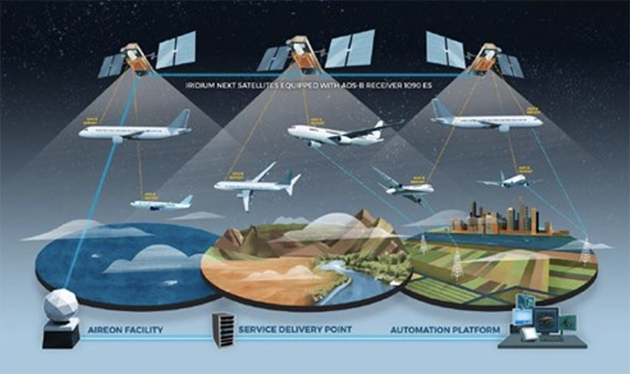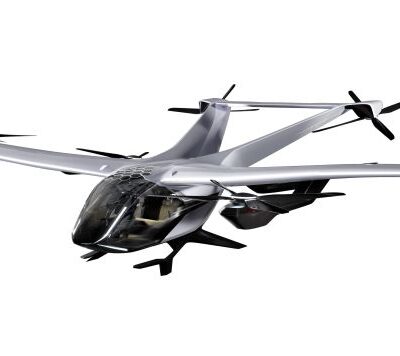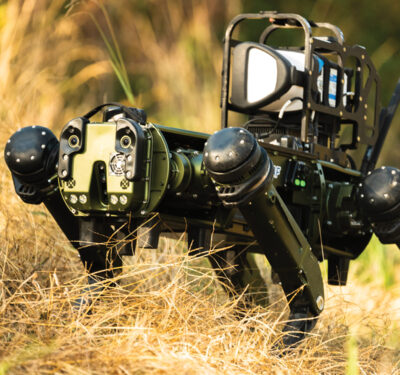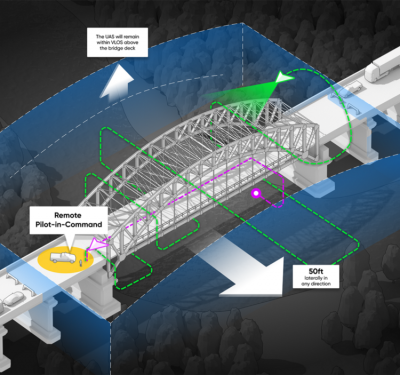
With designs on building a more interconnected sky in a future of increased air traffic, Aireon and Thales today announced the signing of an agreement to expand their space-based Automatic Dependent Surveillance Broadcast (ADS-B) collaboration.
As predicted by The International Air Transport Association (IATA) in 2013, the world is on track to double the number of aircraft flying by 2030. This is leading to an increase in complexity that makes the current state of global air traffic surveillance no longer viable.
More than 70% of the world’s surface is still not covered by traditional surveillance platforms, like primary or secondary radars, therefore a game changing approach to surveillance is required to push thousands more aircraft across the skies, according to a Thales press release. This announcement today, by Thales and Aireon, the first-ever company to build and deploy a global, space-based, air traffic surveillance system, to extend their partnership through a new Memorandum of Agreement (MoA), is a seminal moment on the path to a more interconnected sky.
The agreement aims to position space-based ADS-B data into the Thales aviation data platform ECOSystem to support applications such as Air Traffic Flow Management (ATFM), Collaborative Decision Making (CDM) and UAS Traffic Management (UTM), thus expanding on an agreement executed by the parties in 2015 which established a framework for testing and validation of data integration into the TopSky-ATC, an advanced global air traffic management system.
Through this larger data integration, stakeholders including controllers, pilots, airlines and ANSPs gain increased global visibility of the airspace, thus contributing to optimized operations. This has a direct effect on airspace capacity, as well as a reduction in operating costs from reduced fuel burn. It is designed to reduce ATC infrastructure costs, avoid major future infrastructure investments, enhance airspace flexibility and improve aviation safety.
The partnership’s long-term aim is to create an ecosystem that harnesses next-generation air traffic surveillance technologies. With this breakthrough effort, an air traffic surveillance system will extend reach globally and cover oceanic, polar and remote regions, as well as augment existing ground-based systems. In partnership with leading ANSPs from around the world, as well as a leading satellite communications company, Aireon will provide a global, real-time, space-based air traffic surveillance service to the industry, whilst Thales reconfirms its commitment to expand on the technical collaboration. Thales will focus on ensuring customers can integrate and use Aireon data and leverage Thales’ role as leader in digital technologies to process the considerable volume of data at their disposal for more accurate airspace modelling.
“If you speak to anyone in our industry, they will tell you our goal is a more collaborative sky, the creation of a seamless airspace where every stakeholder shares data to best optimize operations and create synergies,” said Jean Ferré, Thales Vice President, Air Traffic Management activities, in a company statement.“Up until now this goal was aspirational, a dream we were all working on but had only the barest hint on how to get there. What Aireon is doing is providing a critical piece of the solution to enable more seamless global view of aviation operations. And what Thales is going to do is leverage our digital tools and expertise to help Aireon monetize that data beyond ATC and help the industry reach that goal.”
Cyriel Kronenburg, Aireon Vice President, Aviation Services, stated: “Since 2015, Aireon has been actively collaborating with Thales to explore various data integration options and to enable Aireon customers to seamlessly deploy space-based ADS-B data. With this expanded MoA, the possibilities are endless. They are a technological leader and their systems are utilized by many of our customers. In our shared goals to create a seamless airspace and enhance safety, this collaboration will mean that the whole ATM industry will have easy access to our data and the ability to use it in many different areas of aviation.”
ADS-B Payloads Control
Aireon announced last month that it has formally received control of the final six ADS-B payloads from Iridium Communications. Hosted on the Iridium NEXT satellite constellation, Aireon’s space-based ADS-B system will deliver–for the first time in history–100 percent global, real-time surveillance of all ADS-B equipped aircraft. This is a major company milestone and is one of the final steps toward a fully-operational AireonSM system.






